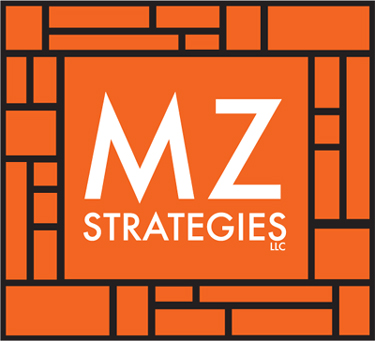Recently, I was asked to guest blog for Living Cities and spotlight recent reports by MZ Strategies to help local communities use existing federal transportation funds to support equitable development. My favorite projects are those where I can engage with clients to find tangible ways to align existing funding programs and policies with local or regional goals. Through this work, I’ve encountered both exciting new strategies and the depressing realities that arise when trying to unlock the funding toolkit.
Too many metropolitan planning organizations still are not able to directly fund projects or support local innovation but instead rely upon the state which adds cost, complexity, time – and that is assuming it gets built. Too many equity issues are being put aside over concerns regarding short term costs – creating bigger costs in the long-term resulting from regional disparities or environmental justice legal concerns. And too many public agencies are afraid to innovate, especially with private sector partners. Politically, it is often easier to spread peanut butter than to make strategic regional investments. These are hard challenges to overcome, but not impossible ones!
The reality is that we live in challenging times, with complex problems requiring complex solutions. Funding these solutions is not simple. But, it is possible if the investment is worthy of support. How do we get there? In some of the regions, such as Portland, Oregon; Seattle, Washington; and Kansas City, MO part of the answer lies in public leadership – both of elected officials and of professional planning staff – and part of it lies in the power of transparent and inclusive decision making. These regions have created, and are using, a robust set of metrics to prioritize investments and track performance.
With open data and a multitude of apps now allowing us to access the world in the palm of our hand, people have come to expect quick and easy access to information. We reward creativity. The public sector needs to be no different. For transportation projects, this means making available information and graphics that tell the story about winners, losers, costs and benefits. It also means we need to use all the tools at our disposal. This can take many shapes. In Seattle, a small portion of federal transportation funds are set aside to invest in local projects that help rural town centers and corridors. In Los Angeles, regional sales taxes are leveraging significant federal and private sector financing to accelerate the build out of their transit system. In Atlanta, the region has established Equity Target Areas using data on race, poverty and other indicators to prioritize transportation investments. In Dallas, tolling funds can help to supplement funding resources to both pay for transit and also to swap with federal funds to accelerate smaller-scale sustainable transportation projects.
As Congress considers the Obama Administration’s proposal for reauthorizing these transportation funding programs, and considers future funding levels and policy changes now is a good time to let your Senator or Congress person know what is working for you, and what needs to change to allow for more innovative projects and inclusive processes. At the same time, state legislatures around the country are wrapping up with many looking at how to fund transportation or what kinds of projects to prioritize. What if instead of business as usual, state legislators made their decisions based on return on investment, impact to economic competitiveness or alleviating regional disparities? Now is a good time for all of us to make our voices heard to get the tools we want, and make sure we’re using all the tools we have!

